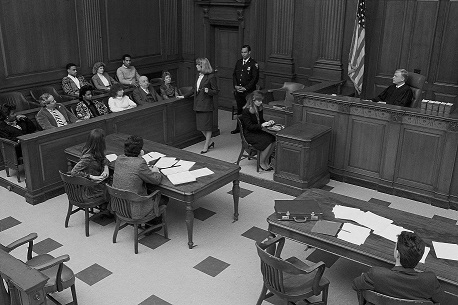Hearsay Law and Its Impact on Legal Proceedings in Arizona.
Posted on September 1, 2023 in Arizona TrialsIntroduction:
Within the legal realm, the term “hearsay” frequently emerges, sparking inquiries about its admissibility and its overall impact on legal proceedings. In this article, we will delve into Arizona’s hearsay law, aiming to provide a comprehensive understanding of this crucial legal concept and its pivotal role within the state’s courtrooms. This is “Arizona’s Hearsay Law Explained.”
Understanding Hearsay:
Hearsay essentially involves an out-of-court statement presented as evidence in a courtroom to establish its truth. In Arizona, much like in many other jurisdictions, hearsay evidence generally faces inadmissibility due to concerns about its potential unreliability.
Significance of Hearsay Law in Arizona:
The rules of evidence in Arizona, including those surrounding hearsay, serve a fundamental purpose – to ensure that only credible and dependable information finds its way into legal proceedings. This stringent approach safeguards the integrity of legal processes while safeguarding the rights of all parties involved.
Crucial Elements of Hearsay Law in Arizona:
- Definition: Under Arizona law, hearsay is broadly defined as out-of-court statements introduced in court to establish the truth of the matter they assert.
- General Rule: As a general rule, courts in Arizona do not admit hearsay evidence unless it falls within a recognized exception.
Accepted Exceptions to Hearsay in Arizona:
While hearsay evidence is typically excluded, Arizona’s rules of evidence enumerate various exceptions to this rule. Three of the more commonly used exceptions are:
- Statements Against Interest: Courts may admit statements made by a declarant that are against their own financial, proprietary, or penal interest.
- Dying Declarations: Statements uttered by a declarant who believes they are nearing death and relate to the cause or circumstances of their impending demise.
- Excited Utterances: Courts consider statements expressed by a declarant while under the influence of shock or excitement due to a startling event or condition.
There are various other hearsay exceptions provided for by Arizona law.
Implications of Hearsay in Legal Proceedings:
Challenges related to hearsay can profoundly affect the strength of a case. Courts meticulously scrutinize the timing and circumstances surrounding a statement, along with its eligibility under an exception to the hearsay rule.
Strategies for Navigating Hearsay Issues in Arizona:
- Comprehensive Documentation: In preparation for a case, it proves crucial to maintain meticulous records of relevant statements, discussions, and events. This diligent approach enables determination of whether these elements might be classified as hearsay.
- Legal Expertise: Given the complexities surrounding hearsay and evidence rules, seeking the services of an experienced attorney becomes essential. Legal experts can provide guidance on your rights, assess the potential implications of hearsay issues, and take the necessary actions to safeguard your interests.
Conclusion: Upholding Legal Integrity in Arizona Courts
Hearsay law in Arizona plays a pivotal role in preserving the integrity of legal proceedings. Understanding its definition, the general rule, and exceptions is vital for all those involved in litigation. By adhering to established regulations, seeking professional legal counsel when needed, and maintaining a commitment to justice, individuals and entities can confidently navigate Arizona’s legal landscape, ensuring that the principles of fairness and integrity prevail in every case.
Contact Bill today by calling 602-319-6899 to ensure your legal needs are conducted with confidence and legal clarity. Some of the issues covered under trial work and business law that our firm regularly handles involve:
Breach of contract, Non-compete agreements, Non-disclosure agreements, Employee theft and embezzlement, Insurance purchases and enforcement of policy coverage, Negotiation and/or enforcement of commercial leases, Negligence and gross negligence resulting in losses, Intentional acts causing a company to suffer damages, Tortious interference with contractual relationships, Unjust enrichment, Real Estate fraud, Consumer fraud, Conversion/Theft, Intentional and/or negligent misrepresentation, Business torts and Real estate title & escrow.
https://www.azcourts.gov/rulesimpactreport/2014-Table-of-Contents/Evidence
